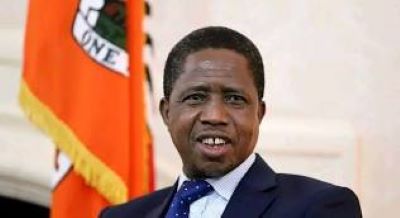Zambia’s Constitutional Court has ruled that former President Edgar Lungu is constitutionally barred from contesting the 2026 presidential election, putting to rest debates surrounding his eligibility.
Delivering the verdict, Justice Arnold Shilimi affirmed that while Lungu was permitted to contest the 2021 election, the constitutional limit of two five-year terms prevents him from seeking another term. The court’s decision came in response to a petition filed by Lusaka businessman Michelo Chizombe, who argued that Lungu’s attempt to contest a third term violated Zambia’s constitution.
Lungu’s political journey began when he assumed the presidency in 2015 following the death of President Michael Sata. He served out the remainder of Sata’s term and went on to win reelection in 2016. However, his tenure ended in 2021 after he lost to current President Hakainde Hichilema.
The court emphasized that the constitutional provision limiting presidents to two terms is a critical safeguard for democracy, ensuring leadership rotation and preventing an overconcentration of power.
Public Reactions Mixed
The court’s decision has elicited mixed reactions across Zambia. Supporters of the ruling see it as a victory for the rule of law and constitutional integrity. “This decision strengthens our democracy and sends a strong message that no one is above the constitution,” said political analyst Mwansa Chileshe.
However, Lungu’s loyalists have expressed disappointment, arguing that his contributions to the nation warranted another opportunity to lead. “President Lungu has a lot more to offer, and this decision denies Zambians the chance to benefit from his experience,” said a supporter in Lusaka.
A New Political Landscape
With the ruling, Zambia’s 2026 election dynamics have shifted, prompting political parties to strategize and prepare new candidates. Meanwhile, Lungu’s political future remains uncertain as his supporters ponder his role in shaping Zambia’s political discourse outside the presidency.
This ruling reinforces Zambia’s commitment to upholding its democratic principles, setting a precedent for leadership accountability and adherence to constitutional limits.


